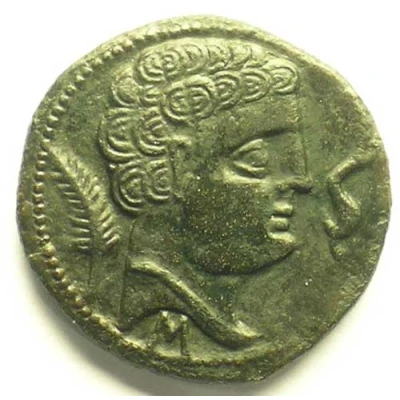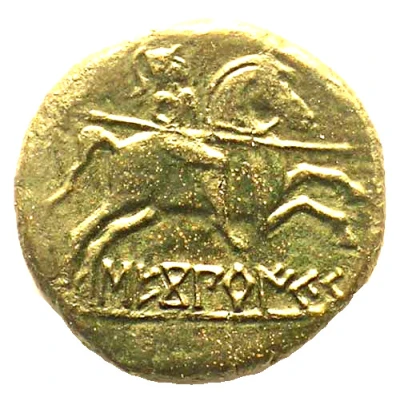


© Saive Numismatique
Unit 133 BC - 76 BC
| Bronze | 10 g | 25 mm |
| Issuer | Sekobirikes (Arevaci people) |
|---|---|
| Type | Standard circulation coin |
| Years | 133 BC - 76 BC |
| Value | 1 Unit |
| Currency | Denarius (late 2nd and early 1st century BC) |
| Composition | Bronze |
| Weight | 10 g |
| Diameter | 25 mm |
| Shape | Round (irregular) |
| Technique | Hammered |
| Demonetized | Yes |
| Updated | 2024-10-10 |
| Numista | N#82540 |
|---|---|
| Rarity index | 90% |
Reverse
Horseman galloping right, wearing helmet, holding spear.
Script: Iberian (Celtiberian)
Comment
Reverse inscription:"S'EKoBiR'IKeS" written from left to right in Northeastern (Levantine) Iberian script.
98 pieces known according to 1876, page 365.
Interesting fact
The Arevaci people were a Celtic tribe that lived in what is now modern-day Spain, and their coinage reflects their cultural and economic ties to other Celtic tribes in Europe. The Sekobirikes coin is a rare example of a bronze coin produced by the Arevaci during their period of independence before they were absorbed into the Roman Empire. It's interesting to note that the coin's design features a unique blend of Celtic and Iberian influences, showcasing the cultural exchange that occurred between these two distinct cultures.